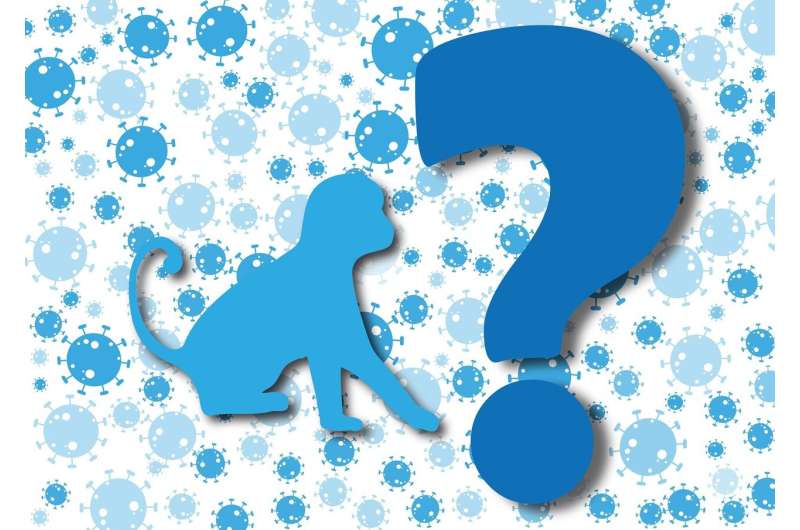Are you at risk of getting monkeypox? Here's everything you need to know

Philadelphia is seeing a rising number of monkeypox cases, as an outbreak that has now been declared a global health emergency spreads across the United States. Many basic questions about the virus remain unanswered, even to the people at highest risk of catching a virus: men who have sex with men.
The uncertainty has left some worrying constantly, while others may underestimate the risk from the virus.
Here are answers to some key questions about the virus:
Q. Is monkeypox an STD?
A. It is not a sexually transmitted disease in that it doesn't spread through semen or due to the activity of sex. Wearing a condom or other contraceptive devices won't necessarily prevent its transmission, according to the Centers for Disease Control and Prevention.
Q. How does monkeypox spread?
A. Monkeypox primarily spreads through direct, prolonged contact with the lesions, blemishes, or rashes it causes in infected people. This is why it is associated with sex, even though it isn't an STD, because all the intimate contact and touching that make sex great is also ideal for transmitting the virus. Any extended duration of bare skin contacting the lesions or rashes of a person with the virus could spread it.
Airborne spread appears to be rare, though close, extended contact with a person's breath through kissing or cuddling can spread the virus. Extended contact with an object that itself has been in contact with someone with monkeypox can also be a risk, according to the CDC, but health experts emphasized that direct, extended physical contact between two people appears to be the most likely means of transmission.
Q. Can I tell if someone has monkeypox?
A. Not necessarily. In some stages, it can look like a pimple, acne, or a mild skin condition.
"It's not obvious," said Lenore Asbel, the medical specialist for the STD control program for the Philadelphia Department of Public Health. "In many people the presentation is subtle and mimics a lot of other things."
Q. How can I practice safe sex?
A. The people most at risk of catching monkeypox right now are gay, bisexual, and trans men who have sex with other men and have recently had two or more partners, or anonymous partners.
One way to reduce risk is to limit sexual partners for the time being or refrain from sex with new partners, said Michael LeVasseur, a Drexel University epidemiologist.
The Philadelphia Public Health Department recommended people ask a potential sexual partner the following questions:
- Have you been around someone who had monkeypox?
- Are you feeling sick?
- Do you have a rash or lesions on your body?
Chris Bartlett, president of the William Way Center, an LGBTQ community hub in Philadelphia, said gay men have experience with serious illnesses in the community due to HIV and have found ways to experience intimacy and affection safely.
"I think one of the things the gay community has been really good at is innovations in addressing intimacy in the context of health promotion," he said. "We do have a sense of mutual care. It's been part of our community for many years."
Q. Monkeypox is related to smallpox. Does my old smallpox vaccine offer any protection?
A. It probably does. For people vaccinated against smallpox, overwhelmingly people born before 1972, it's believed that old vaccine can provide about 70% protection against this virus, said Drexel's LeVasseur.
Q. Can incidental contact or working in a business that involves touching someone be risky?
A. The likelihood of catching monkeypox by touching something briefly touched by someone else with the virus, such as exchanging money, is probably slim, said Helen Koenig, University of Pennsylvania professor of medicine and medical director of the infectious disease clinic at Penn.
People who touch customers may wish to take additional precautions. For example, a hairdresser could potentially be infected if the customer has scalp lesions from monkeypox and the hairdresser has an open cut on a hand.
"Depending on the type of contact with clients you have in your line of work, you might consider wearing gloves, especially if you have cuts on your hands," Koenig said.
©2022 The Philadelphia Inquirer, LLC.
Distributed by Tribune Content Agency, LLC.


















